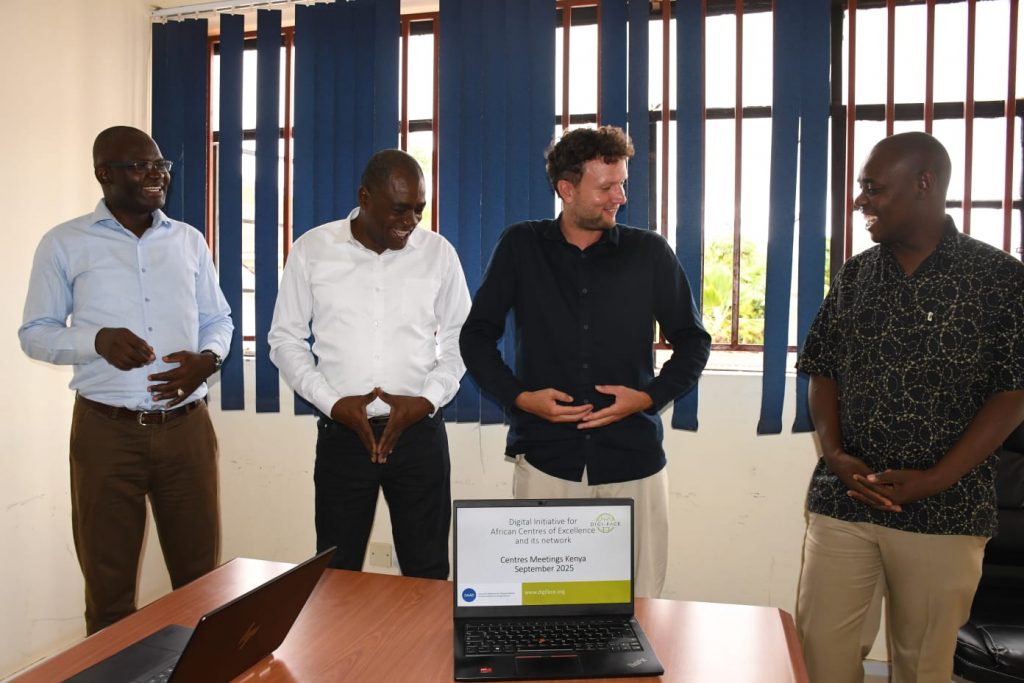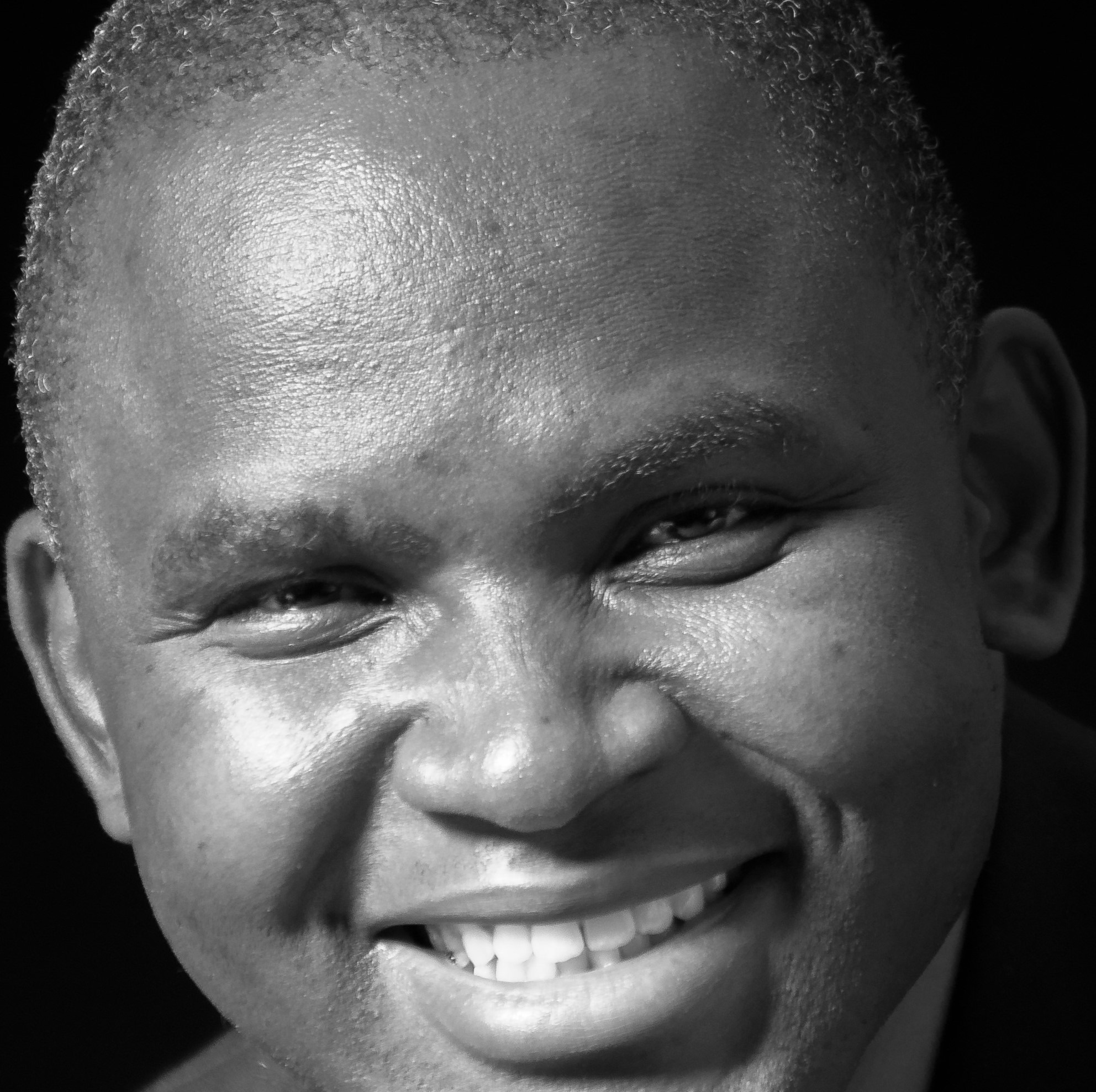A Courtesy Call and A Team Appreciation
Voi, Kenya — 18 September 2025
The Digital Initiative for African Centres of Excellence (DIGI-FACE) lit up Kenya’s Coast as Hannes Köninger of Hochschule Kehl, Germany, paid a courtesy call to Taita Taveta University (TTU). He met with the TTU DIGI-FACE team: David Chikati (Director, ODeL), Nashon Adero (Dean, School of Mines TTU and Engineering), and Kibwana Zamani (Head of ICT).

Scaling the Challenge of Digital Access and Fluency in Africa
Probing questions are often a more powerful catalyst for learning than tidy answers. Africa’s terrain—both literal and metaphorical in its uneven access to education and technology—has fuelled my persistent curiosity about how to socialise and personalise learning, especially in abstract subjects such as mathematics and engineering concepts. If Thabo Mbeki’s “I am an African” speech is any compass to emulate, then my stubborn questions about improving education on the continent demand more than the traditional structures, mindset, and order can bear. In an age increasingly shaped by artificial intelligence, digital tools and digital fluency are not optional; they are indispensable. That’s where DIGI-FACE comes in, and from here, the rest of my storytelling and thoughtful ideas follow.
Pedagogical Content Knowledge (PCK), the integration of pedagogy and subject content knowledge, is essential for effective teaching and enhancing student understanding. Many university lecturers are masters of content but not of pedagogy. A powerful start to every session aligns minds and purpose: a quick Recall (RC) to activate prior knowledge, an engaging Hook to create relevance, a Misconception Probe to surface likely errors before they harden, and a Key Inquiry Question (KIQ) to focus the hour. The result: clearer thinking, fewer detours, and deeper learning.
Started before COVID-19 and inspired by the rising uptake thereafter, DIGI-FACE is progressively bridging the last-mile gap in effective teaching and learning across Africa’s diverse physical and educational landscapes.
The visit by Hannes celebrated how African higher education institutions are accelerating access to digitally integrated, technology-enabled, and increasingly personalised learning. An online meeting with teams from Germany and South Africa from 15:00 EAT wrapped up the day. From virtual classrooms to flexible micro-learning pathways, the TTU team affirmed that strategic investments in digital infrastructure and staff capacity are translating into better learning experiences and stronger student outcomes. At the heart of this momentum is DIGI-FACE—a pan-African platform designed to foster collaboration, knowledge sharing, and innovation among African Centres of Excellence.
More than a repository, DIGI-FACE is a vibrant community hub where academics and professionals co-create teaching resources, exchange research insights, and pilot new pedagogical models. Its reach extends beyond the continent, connecting universities, research institutions, and practitioners worldwide to ensure that high-quality knowledge and innovative practices are accessible to a broad audience.
𝓚𝓮𝔂 𝓘𝓷𝓼𝓲𝓰𝓱𝓽𝓼 𝓯𝓻𝓸𝓶 𝓣𝓣𝓤 𝓣𝓮𝓪𝓶
DIGI-FACE shortens the distance between ideas and impact. Our June 2024 visit to Nelson Mandela University, South Africa, empowered us to design courses for e-learning using Moodle. By aligning people, platforms, and purpose in the digital age, we can scale borderless quality education for learners, wherever they are, complete with stackable micro-credentials.
Learning has never been more interesting and inclusive because digital tools and immersive technologies (extended reality) can leverage teaching and learning by demystifying concepts and regulating the pace of learning. University lecturers can now become better teachers as digital tools enhance teaching: better scaffolding and sequencing, orchestrated immersion, and improved pedagogical content knowledge (PCK).
As TTU deepens its engagement with DIGI-FACE, priorities include expanding open educational resources, strengthening digital skills for staff and students, and leveraging data to personalise learner support. The shared commitment is clear and compelling: build resilient, inclusive, and future-ready education ecosystems that empower Africa’s next generation.
You must be logged in to rate posts.
1 Comments
Leave a Reply
You must be logged in to post a comment.




This is a great summary of the challenges and opportunities in digital education in Africa. The key insights are spot-on. Thanks for sharing these thoughtful ideas…